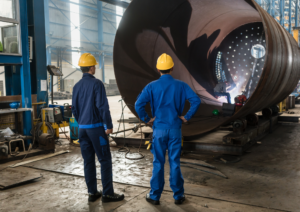The United Nations (UN) Global Compact is a voluntary initiative by the UN focused on driving sustainable business practices worldwide. Since the introduction of its governance framework in 2005, the UN Global Compact has held dozens of talks, summits, and forums dedicated to engaging stakeholders on how companies, corporations, and governments worldwide can tackle climate change and move towards a more sustainable future.
Here in Singapore, those efforts are spearheaded by the Global Compact Network Singapore (GCNS), the local chapter of the UN Global Compact. The GCNS’ main focus is on multi-stakeholder action as a driver of corporate sustainability, and its members include key business and labour organisations in Singapore such as the Singapore Business Federation (SBF), National Trades Union Congress (NTUC) and Singapore National Employers Federation (SNEF).
On 17 October 2022, the GCNS held their annual summit with the theme “Global Challenges, Shared Agenda – Time for Decisive Action”. The summit focused on how companies in Singapore could contribute towards a sustainable future, particularly in relation to the Sustainable Development Goals (SDGs). The main topics discussed during the event were Decarbonisation, Supply Chain Management, and Sustainable Innovation.
Here are 3 key takeaways for businesses:
1. Businesses have multiple avenues to pursue decarbonisation
Singapore’s government is already moving towards a decarbonised future, especially with future plans to increase its carbon tax from $5 per tonne to $25 per tonne by 2024, and ultimately $50 to $80 per tonne by 2030.
As a popular location for regional headquarters of multinational corporations such as Shell, ExxonMobile, and dozens of top-tier companies across almost every industry, the nation’s push towards lowering carbon emissions is one that businesses need to keep up with in order to stay competitive.
During the GCNS Summit, Guest-of-Honour Senior Minister Teo Chee Hean reiterated that businesses must begin to incorporate decarbonisation into their long-term business and risk strategies. Teo outlined several methods for this including:
- Reviewing and revising carbon-intensive business activities
- Reducing overall emissions
- Embracing decarbonisation and clean technologies
- Right-pricing carbon emissions
- Carbon credits
Small and medium-sized businesses can consider the first two options to begin crafting their corporate sustainability strategy. Another option is green financing, particularly through the private sector. As more private investors embrace environmental, social, and governance (ESG) investments, more options are now available for companies who are willing and able to prove that they too take the future of the planet seriously.
2. Supply chain visibility is becoming more important to consumers
Companies looking to build a resilient long-term sustainability strategy also need to take their supply chain management into account and increase supply chain visibility (SCV). Consumers are increasingly mindful of the environmental impact of their purchases, and value greater SCV in reflecting the company’s overall social responsibility practices.
This has great potential not just in affecting consumers’ decisions to purchase a product they see as more sustainable, but in building their brand loyalty to companies that align with their values. As Senior Minister Teo mentioned in his speech, “more than one third of consumers were willing to pay more for sustainable products, and those willing to pay more would accept a 25% premium on average”.
Those are no small numbers, and businesses at any size and scale can easily see the benefits of sustainable supply chain management to long-term earnings.
3. Sustainable innovation is key to long-term sustainability strategies
For companies that have the resources and capital to do so, they should take the initiative to invest in climate tech solutions where possible. Innovative technologies aimed at combating climate change can now be found across any industry, ranging from renewable energy sources to cell-based food innovations. These can be incorporated as new product or business lines, or as ways to improve and optimise existing business processes.
As a regional research and technology hub, Singapore is well positioned to offer companies support in this area. During his speech, Senior Minister Teo specifically pointed out the Low-Carbon Energy Research (LCER) Funding Initiative (FI), a multi-agency grant that supports projects developing low-carbon energy technologies with up to S$10 million in funding for Tier 1 projects.
What’s Next for Businesses in Singapore?
Whether through decarbonisation, supply chain management, sustainable innovation, or any combination of the three, the 2022 GCNS Summit has made it clear that businesses need to start reviewing their sustainability strategies now in order to keep up with upcoming market demands.
With Singapore’s Green Plan 2030 already underway, businesses will also face increasing regulatory pressure, on top of consumer pressure, to go green and craft policies aimed at tackling climate change. This means that businesses who fail to keep up with changing standards of corporate responsibility and sustainable practices don’t just stand to lose out on their customer base, but miss out on key support from the government as well.





